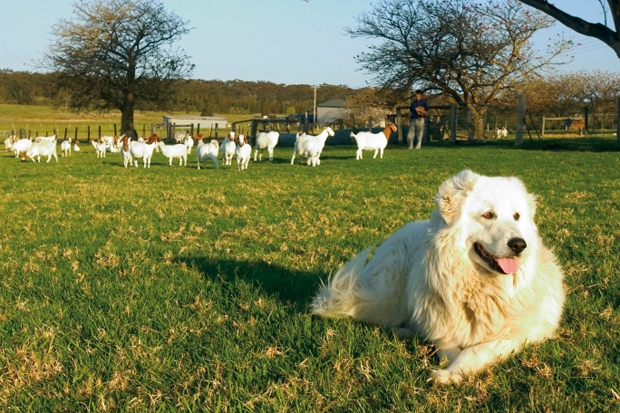Of the nine chickens I used to keep here in Northamptonshire only one survived the summer, and it was the least appealing of them — broody, squawky, aggressive, and a bad layer. The others were all taken, one by one, by foxes. Unfond though I am of the only survivor, a black Sussex hen, she has at least enabled me to cling on to my position as a keeper of poultry, however little of it, and I have now bought a white Sussex hen to keep her company. But I am keeping them cooped up all the time — something I promised I would never do — until I can find some way of protecting free-range chickens from their vulpine predators.
As I have written before, I have received a lot of advice from readers about how best to do this. It has included having radios blaring away all the time in the garden and recruiting a gang of young boys to pee round its perimeter because ‘foxes will not cross human urine’. One reader even suggested that I buy some alpacas because foxes always give these exotic animals a wide berth. But at last there has been a suggestion that actually appeals to me. It has come in an email from Dr Ciara O’Sullivan of Alice Springs, Australia, who thinks I should acquire an Italian Maremma Sheepdog. This dog, she explains, ‘is traditionally used to protect sheep from wolves, but can bond with and protect other species, including poultry, goats and cattle’.
I know the Maremanno, for we had one at our house in Tuscany for many years and grew to love him dearly. He had turned up there as a puppy — apparently abandoned by its owner, as Italian dogs so often are — and resisted every attempt to send him away again. We weren’t keen to keep him because stray dogs were always turning up at the house, and we had already taken two Dalmatian puppies into care. However, nothing would deter this persistent puppy in his efforts to make our house his home, and so we gave in and decided to keep him. He was given the name Eddy and developed into the noblest, gentlest, most delightful dog that I have ever known.
Eddy was very lucky to survive. He came to us at a time when dogs in Tuscany were dying in their thousands from eating poisoned meat balls planted around the countryside by Italian hunters seeking to protect game birds from their predators. These predators were mainly foxes, but by far the largest number of victims of poisoning were domestic pets. Our then Tuscan neighbour, Muriel Spark, had at least five dogs poisoned in the space of a few years, and our two Dalmatians died in the same way. But Eddy was fastidious about his food, which may explain why he never ate any poisoned meat.
He did, however, nearly meet his end when he barked at an Italian hunter strolling with his shotgun close to our house. The man responded by firing his gun at him, wounding him in an eye and an ear. Eddy bled profusely, but soon recovered and was his usual serene self again. Maremanni are huge mountain dogs with thick white coats, extremely gentle with lambs and children, but sometimes aggressive with strangers. They are excellent guard dogs. Eddy would sit silently for hours on a hillock above our house with a commanding view of the surrounding countryside, ready to respond to any potential threat. There was great sadness when he eventually died.
Dr O’Sullivan included in her email several photographs of Maremanni lying contentedly out of doors among large flocks of chickens that looked equally contented. In one or two of the photos a Maremanno was shown nosing a chicken affectionately. These were touching images, and I have begun to dream of such sights on my lawn in Northamptonshire. These won’t happen soon. First I would need to buy and train a Maremanno, persuading it to bond with chickens. Then I would have to build up a new flock of chickens for it to guard. I haven’t got the time or the energy for such things at the moment, but who knows? One day?






Comments